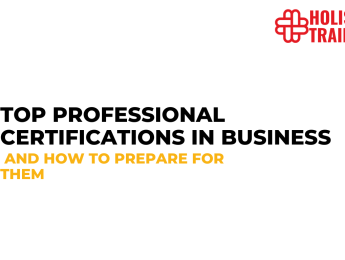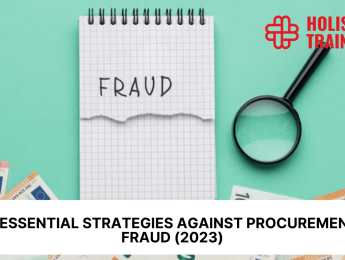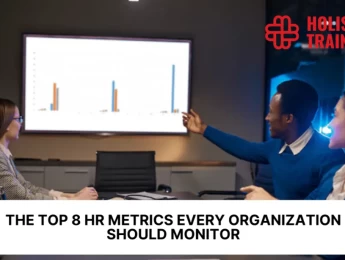- Table of Contents
- Certified Public Accountant (CPA):
- How to prepare for CPA certification:
- Project Management Professional (PMP):
- How to prepare for PMP certification:
- Certified Management Accountant (CMA):
- How to prepare for CMA certification:
- Certified Information Systems Auditor (CISA):
- How to prepare for CISA certification:
- Chartered Financial Analyst (CFA):
- How to prepare for CFA certification:
- Six Sigma Certification (Various Levels):
- How to prepare for Six Sigma certification:
- Certified Business Analysis Professional (CBAP):
- How to prepare for CBAP certification:
Introduction
In today's competitive business landscape, obtaining professional certifications can be a game-changer for career advancement and industry recognition. Whether aiming to specialize in accounting, project management, IT audit, or financial analysis, certifications like CPA, PMP, CISA, and CFA stand out as benchmarks of expertise and credibility. However, preparing for these exams requires diligent planning and focused study. This article explores the top professional certifications in business, outlining their significance across various sectors and offering practical advice on how to effectively prepare for these rigorous exams. From understanding exam structures to leveraging study resources and gaining practical experience, mastering these certifications can pave the way for professional success and growth in today's dynamic business environment.
Certified Public Accountant (CPA):
Offered by the American Institute of CPAs (AICPA), CPA certification is essential for accountants and financial professionals.
It demonstrates expertise in accounting principles, taxation, auditing, and other financial areas crucial for businesses.
How to prepare for CPA certification:
- Enroll in a reputable CPA review course that covers all exam topics.
- Allocate sufficient study time and create a study schedule.
- Practice with CPA exam questions and simulations to familiarize yourself with the format.
- Utilize supplementary materials like textbooks, flashcards, and online resources.
- Consider joining study groups or forums for peer support and discussion.
- Take mock exams to assess your readiness and identify areas needing improvement.
Project Management Professional (PMP):
- Offered by the Project Management Institute (PMI), PMP certification is globally recognized for project managers.
- It signifies competence in leading and managing projects, including skills in project planning, execution, budgeting, and risk management.
How to prepare for PMP certification:
- Meet the eligibility requirements and apply for the PMP exam.
- Enroll in a PMP exam preparation course or self-study using PMI's official guide.
- Study PMBOK Guide (Project Management Body of Knowledge) thoroughly.
- Practice with PMP exam questions and sample tests.
- Collaborate with other project managers to discuss best practices and real-world scenarios.
- Take simulated PMP exams to assess your readiness and identify weak areas for further study.
Certified Management Accountant (CMA):
- Offered by the Institute of Management Accountants (IMA), CMA certification focuses on management accounting.
- It covers financial planning, analysis, control, decision support, and professional ethics, ideal for management accountants.
How to prepare for CMA certification:
- Enroll in a CMA exam preparation course from an accredited provider.
- Study the IMA's Learning System materials covering all exam content areas.
- Practice solving CMA exam-style questions and scenarios.
- Join study groups or forums to discuss complex topics and share study tips.
- Take advantage of IMA resources, including webinars and practice exams.
- Review ethics standards and guidelines thoroughly as they are integral to the CMA exam.
Certified Information Systems Auditor (CISA):
- Offered by ISACA, CISA certification is for professionals involved in information systems audit, control, and security.
- It demonstrates skills in assessing vulnerabilities, managing IT compliance, and implementing controls within an organization.
How to prepare for CISA certification:
- Enroll in a CISA exam preparation course or study using ISACA's official resources.
- Understand the domains covered in the CISA exam and focus on weak areas.
- Use ISACA's review manual and practice questions to reinforce your understanding.
- Take advantage of ISACA's online forums and communities for study tips and resources.
- Consider attending CISA exam review seminars or workshops.
- Take practice exams to simulate real exam conditions and assess your readiness.
Chartered Financial Analyst (CFA):
- Offered by the CFA Institute, CFA certification is highly regarded in the investment management profession.
- It covers a broad range of topics including financial analysis, portfolio management, ethical and professional standards.
How to prepare for CFA certification:
Enroll in a CFA exam prep course offered by CFA Institute or other reputable providers.
Study the CFA Program curriculum, including ethics and professional standards.
Solve practice questions and mock exams to gauge your understanding and speed.
Participate in study groups or forums to discuss challenging topics and exchange study materials.
Attend CFA review seminars or workshops for additional guidance and tips.
Focus on time management during the exam as it is crucial to completing all sections within the allotted time.
Six Sigma Certification (Various Levels):
- Offered by organizations like ASQ (American Society for Quality), Six Sigma certifications (e.g., Green Belt, Black Belt) focus on process improvement and quality management.
- They demonstrate proficiency in statistical analysis, project management, and continuous improvement methodologies.
How to prepare for Six Sigma certification:
- Enroll in a Six Sigma training program (Green Belt, Black Belt, etc.) from accredited providers like ASQ or other reputable institutions.
- Understand the DMAIC (Define, Measure, Analyze, Improve, Control) methodology and associated tools.
- Complete project work that applies Six Sigma concepts to real-world scenarios.
- Use Six Sigma textbooks, online resources, and practice exams to reinforce learning.
- Collaborate with mentors or peers who have Six Sigma experience for guidance and support.
- Take mock exams to assess your readiness and improve your problem-solving skills.
Certified Business Analysis Professional (CBAP):
- Offered by the International Institute of Business Analysis (IIBA), CBAP certification is for business analysts.
- It validates skills in analyzing business needs, eliciting requirements, and facilitating stakeholder collaboration for effective solutions.
How to prepare for CBAP certification:
- Meet the CBAP eligibility requirements and apply for the exam.
- Enroll in a CBAP exam preparation course or self-study using IIBA's BABOK Guide (Business Analysis Body of Knowledge).
- Review and understand the six knowledge areas and underlying competencies outlined in the BABOK Guide.
Table: Summary of Top Professional Certifications In Business
Certification | Overview | Preparation Tips |
Certified Public Accountant (CPA) | Essential for accountants and financial professionals, covering accounting principles, taxation, auditing, and financial areas crucial for businesses. | - Enroll in a reputable CPA review course. - Allocate sufficient study time and create a schedule. - Practice with CPA exam questions and simulations. - Use supplementary materials like textbooks and online resources. - Join study groups for peer support. - Take mock exams to assess readiness. |
Project Management Professional (PMP) | Globally recognized for project managers, focusing on project planning, execution, budgeting, and risk management. | - Meet eligibility requirements and apply for the PMP exam. - Enroll in a PMP exam prep course or self-study using PMI's guide. - Study PMBOK Guide thoroughly. - Practice with PMP exam questions and sample tests. - Collaborate with other project managers. - Take simulated PMP exams for assessment. |
Certified Management Accountant (CMA) | Focuses on management accounting including financial planning, analysis, decision support, and professional ethics. | - Enroll in a CMA exam preparation course. - Study IMA's Learning System materials comprehensively. - Practice solving CMA exam-style questions. - Join study groups for discussion and tips. - Utilize IMA's webinars and practice exams. - Review ethics standards rigorously. |
Certified Information Systems Auditor (CISA) | For IT audit, control, and security professionals, covering domains such as vulnerability assessment and compliance management. | - Enroll in a CISA exam prep course or use ISACA's official resources. - Understand exam domains thoroughly. - Use ISACA's review manual and practice questions. - Engage with ISACA's online forums for study tips. - Consider attending review seminars or workshops. - Take practice exams for realistic exam simulation. |
Chartered Financial Analyst (CFA) | Highly regarded in investment management, encompassing financial analysis, portfolio management, and ethical standards. | - Enroll in a CFA exam prep course from CFA Institute or reputable providers. - Study the CFA Program curriculum and ethics standards. - Solve practice questions and mock exams. - Participate in study groups or forums. - Attend CFA review seminars for guidance. - Focus on time management during the exam. |
Six Sigma Certification (Various Levels) | Focuses on process improvement and quality management through methodologies like DMAIC (Define, Measure, Analyze, Improve, Control). | - Enroll in accredited Six Sigma training (e.g., Green Belt, Black Belt). - Understand DMAIC methodology and tools. - Apply Six Sigma concepts in practical projects. - Use textbooks, online resources, and practice exams. - Collaborate with mentors or peers. - Take mock exams to enhance problem-solving skills. |
Certified Business Analysis Professional (CBAP) | Validates skills in business analysis including requirements elicitation and stakeholder collaboration for effective solutions. | - Meet CBAP eligibility requirements and apply for the exam. - Enroll in a CBAP exam prep course or self-study using IIBA's BABOK Guide. - Review and understand BABOK Guide's knowledge areas. |
These certifications are widely recognized in their respective fields and can significantly enhance career prospects by demonstrating specialized knowledge, skills, and commitment to professional development. The choice of certification should align with your career goals and the specific requirements of your industry or job role.

























